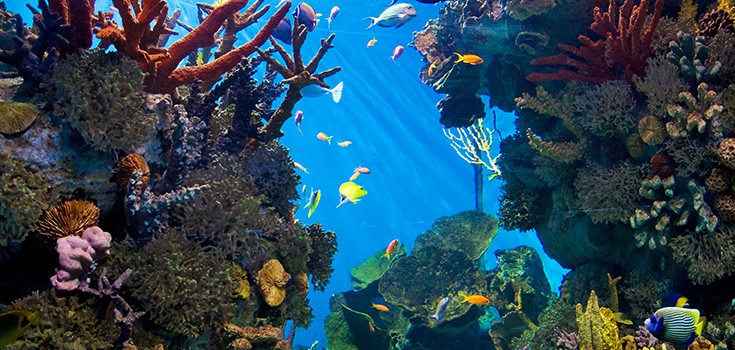Scientists Propose Dumping Hundreds of Tons of Iron into Ocean to ‘Stop Global Warming’

In an attempt to ‘stop global warming’, scientists have been experimenting with dumping several tons of iron into the Antarctic ocean in order to potentially fertilize the development of plankton. Despite raising a multitude of red flags raised from leading scientific organizations and health watch organizations, a new study is now calling for the practice to be even further extended as a worldwide ‘geoengineering’ strategy to alter the climate via dumping hundreds of tons of iron dust into the ocean. Previous research found that by dumping the
The implementation began with a California-based company known as Planktos, a self-described private ‘ecorestoration’ company. While the widescale iron dumping experiment was halted due to lack of funding, some are still calling for the plan to be followed through. Using a 115-foot ship, the company team members aimed to travel over 200 miles west of the Galápagos Islands and ultimately dump a hundred tons of iron dust into international water.
As iron can stimulate plankton growth (organisms which absorb CO2), it has been touted to be a method of artificial engineering the climate with great effectiveness. In fact, one scientist named John Martin said in 1980 that a “half tanker of iron” could cause an ice age. Planktos sought to dump excessive amounts of iron into the ocean, capture carbon, and then sell carbon credits to companies looking to ‘offset’ their global emissions. A mission that ultimately collapsed.
But now Planktos’ CEO Russ George and some ‘environmental scientists’ are back in the saddles and looking to revisit the concept that involves selling off potentially millions (if not billions) of dollars of outlandish carbon credits to major corporations. An operation that while not only risky in regards to what we know might happen, but also what we don’t know that may happen. As detailed in a UNESCO report, it is documented that such tinkering with the ocean’s natural regulation is quite risky. The report states:
“Large-scale fertilization could have unintended (and difficult to predict) impacts not only locally, e.g. risk of toxic algal blooms, but also far removed in space and time. Impact assessments need to include the possibility of such ‘far-field’ effects on biological productivity, sub-surface oxygen levels, biogas production and ocean acidification.”
For now, the plan has no set date or confirmation. If the organizations and individuals backing this plan get their way, however, hundreds of tons of iron may soon be dumped into the earth’s oceans without properly identifying the risks associated with the process.

Rather play crap in the ocean, why not stop using fossil fuels?
We are already geoengineering in many ways, much of it unintentional. What we are talking about here is acting to limited the damage from what we have done. Under the most optimistic scenarios reducing fossil fuel use will be a slow process. Several of our great cities will be under water before we can switch to less damaging fuels.